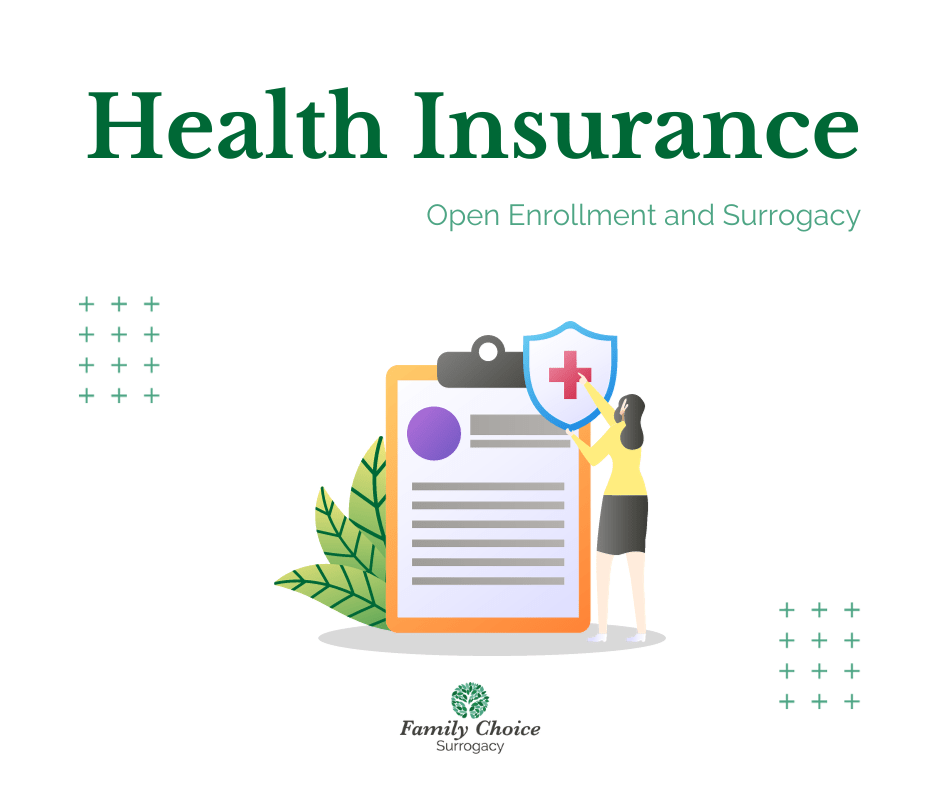
In the ever-evolving landscape of family planning, surrogacy has become a viable and sought-after option for many individuals and couples. However, the journey towards surrogacy is not only an emotional and logistical challenge but also involves careful consideration of financial aspects, particularly health insurance. Open enrollment, a designated period during which individuals can enroll in or modify their health insurance plans, plays a pivotal role in ensuring comprehensive coverage for those embarking on the surrogacy path.
The Surrogacy Landscape:
Surrogacy is a deeply personal choice that allows individuals or couples to expand their families when faced with challenges such as infertility or medical conditions that prevent pregnancy. While the emotional and ethical aspects of surrogacy are often at the forefront of discussions, it’s equally crucial to address the financial implications, with health insurance being a key player in this arena.
Health Insurance and Surrogacy:
One of the primary considerations for those exploring surrogacy is understanding how health insurance can support the journey. Traditional health insurance plans may not cover the costs associated with surrogacy, including fertility treatments, prenatal care, and delivery expenses. This is where open enrollment becomes a critical factor in securing the right coverage.
Why Open Enrollment Matters:
Open enrollment is the designated period each year during which individuals can enroll in or modify their health insurance plans. It is an opportunity to reassess and adapt coverage to better align with life events, and for those considering becoming a surrogate, it’s a strategic time to work with their agency to ensure that their health insurance plan adequately covers the specific needs associated with the process.
**Evaluate Existing Coverage:**
For every surrogate candidate, it’s important to evaluate their existing health insurance plans. This involves working with the surrogacy agency and insurance provider to determine how/if their health insurance will cover maternity care and other related medical expenses. If the current plan does not provide coverage for surrogacy-pregnancy-related costs, it may be time to explore alternative options.
**Consider Alternative Coverage Through the ACA:**
Open enrollment is the opportune moment to explore and enroll in such plans that will help cover a surrogate pregnancy and delivery. This extra layer of protection can significantly alleviate the financial burden associated with surrogacy. This includes considering plans with comprehensive maternity coverage, and ensuring that prenatal care, delivery, and postnatal care for the surrogate are adequately covered.
**Explore Employer Benefits:**
For Intended Parents, this is a great time to explore and enroll in additional employer benefits. Open enrollment is the time to explore and leverage any employer-sponsored benefits that can support infertility treatments. This may involve consulting with HR representatives to gain a clear understanding of available options and potential financial assistance.
Conclusion:
Embarking on the surrogacy journey requires careful planning, and a crucial aspect of this planning is ensuring that health insurance coverage aligns with the unique needs of the process. Open enrollment serves as a vital opportunity to assess and modify health insurance plans, providing surrogates and intended parents with the peace of mind that comes from knowing they have comprehensive coverage for the various stages of surrogacy. By taking advantage of open enrollment, surrogates, and intended parents can navigate the financial aspects of surrogacy more confidently, focusing on the joyous prospect of building their families.
